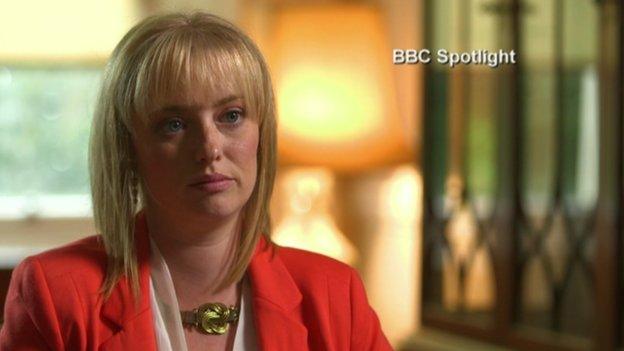Máiría Cahill allegations: Sir Keir Starmer criticises handling of rape cover-up claims
- Published
Ms Cahill says she has been vindicated by a report that criticised the way the PPS handled her allegations of rape and an IRA cover-up.
Northern Ireland's Public Prosecution Service has been strongly criticised for its handling of allegations of rape and claims of an IRA cover-up.
Sir Keir Starmer was asked to investigate three cases linked to the alleged rape of Máiría Cahill.
Ms Cahill told a BBC NI programme that an IRA member raped her when she was a teenager.
The review concluded the PPS had taken too long to reach decisions and described the delays as "unacceptable".
Sir Keir, a former director of public prosecutions for England and Wales, was appointed in October to examine how the PPS had handled the cases.
His report said Ms Cahill and two other alleged rape victims were "let down" by the PPS's handling of the cases.
The PPS has apologised to the women.
Sir Keir Starmer, announcing the review's conclusions, says complainants were "let down" by the PPS
Director of Public Prosecutions Barra McGrory said: "One issue I'd like to make clear at the very outset is that no blame in relation to the collapse of these cases attaches to Máiría Cahill or the other two victims.
"In Sir Keir's words, the Public Prosecution Service let you down and for that I wish to say sorry."
Collapsed trials
Ms Cahill is a member of one of the republican movement's best-known families.
Her great uncle, Joe Cahill, was one of the founders of the Provisional IRA and a long-time associate of Sinn Féin president, Gerry Adams.
Ms Cahill told a BBC NI Spotlight programme last year that an IRA member had raped her when she was a teenager and that four other members of the organisation later covered up the alleged abuse.
She also accused the PPS and the police of failing to properly investigate her allegations.
Three separate trials later collapsed after she and two other alleged victims withdrew their evidence. Five people were then acquitted of all charges against them.
Martin Morris had been charged with rape and IRA membership.
Four others, Padraig Wilson, Seamus Finucane, Briege Wright and Agnes McCrory, had faced IRA membership charges.
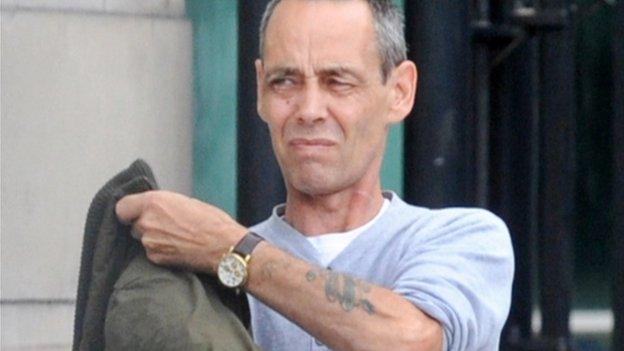
Martin Morris was acquitted of all charges against him following two separate court cases in 2014
Afterwards, Ms Cahill claimed that one of the key reasons the trials collapsed was the fact that it took more than four years for the cases to go to court.
Sir Keir's report describes the cases as "difficult, unusual and complicated", but then lists a series of failings by the prosecution service.
'Not pursued'
It said that in order for the interests of the three alleged victims to be protected, it was "imperative that the sexual abuse case be tried with all reasonable expediency".
But that did not happen.
The report said "the time taken to reach decisions to prosecute in the membership cases was too long", and that "the overall delay in the sexual abuse prosecution was unacceptable".
Director of Public Prosecutions apologises to Mairia Cahill and two other alleged rape victims.
It said the result of the delays was that "each case became weaker over time" as "key witnesses pulled out" and "evidential leads were not pursued".
Given the "significant failings in this case" it concludes that "it was almost inevitable" that the three alleged victims would "pull out of the process".
'Prioritised'
The lead prosecution counsel, a barrister employed by the PPS, is criticised for failing to oppose a request by defence teams to change the order in which the trials were to be held.
The request was granted and meant the sexual abuse trial could not go ahead until the charges of IRA membership had been dealt with first.
Sir Keir described this as a significant step, and said the lead prosecution lawyer failed to consult with senior PPS management or the alleged victims.
"From that date on, the sexual abuse case was held back pending the trial of the membership cases," the report said.
"There were grounds for strongly opposing the defence argument and submitting that the sexual abuse case should be prioritised, as it had been since the beginning of the case, not only by the court but by the police and prosecutors."
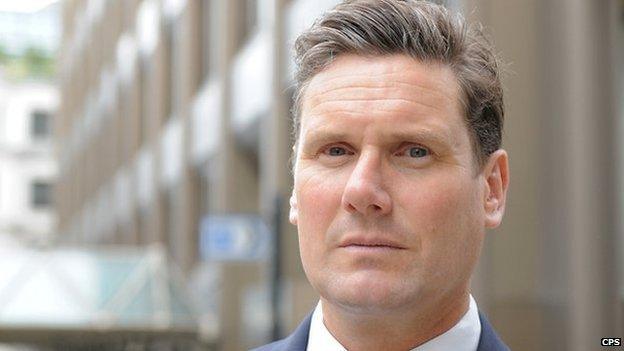
Sir Keir Starmer, a former director of public prosecutions for England and Wales, was appointed in October to examine how the PPS had handled the cases
There is also strong criticism of a lack of communication between the prosecution team and the three women making the allegations.
The report said this "contributed to a loss of faith ....in the conduct and handling of the cases by the PPS".
On a positive note for the PPS, the report rejected any suggestion that the trials collapsed as a result of a conspiracy.
It concludes that "there is no evidence... to suggest that decisions or actions of members of the prosecution team were improperly motivated".
PPS apology
The report also stated that "it cannot be said with certainty whether the outcomes of these cases would have been different if particular decisions had been taken differently".
Responding to the report, Northern Ireland's Director of Public Prosecutions, Barra McGrory said: "I take very seriously the failings identified particularly in the quality and timeliness of the decision making at key points by senior members of this prosecution team."
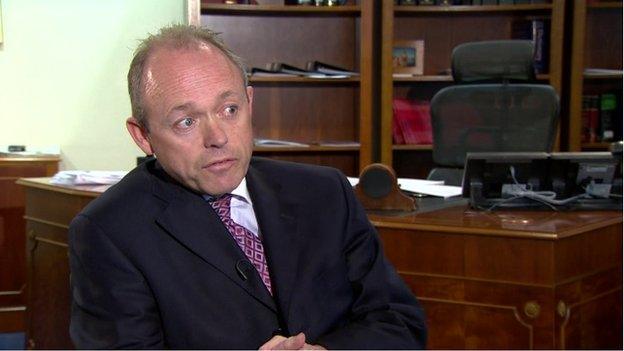
The Director of Public Prosecutions, Barra McGrory, apologised to the three alleged rape victims for the PPS failings identified by the Starmer report
Mr McGrory added: "I want to take this opportunity to express, as director of public prosecutions, a sincere apology to the three victims in these cases.
"It is clear that our service to them fell far short of the standard that they - and indeed the PPS - would expect.
"And I also want to say, to them and all other victims of sex abuse offences, that I am committed to ensuring that what happened in these cases will not be allowed to happen again," the DPP said.
- Published22 May 2015
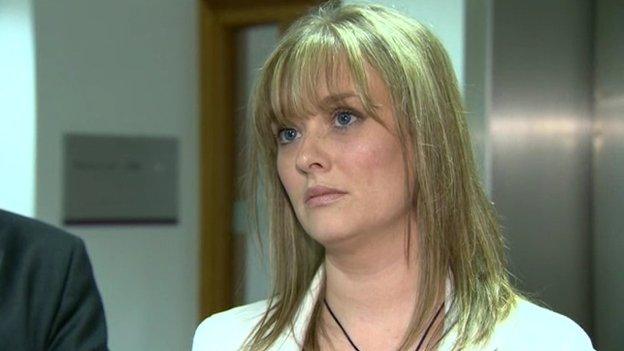
- Published5 December 2014
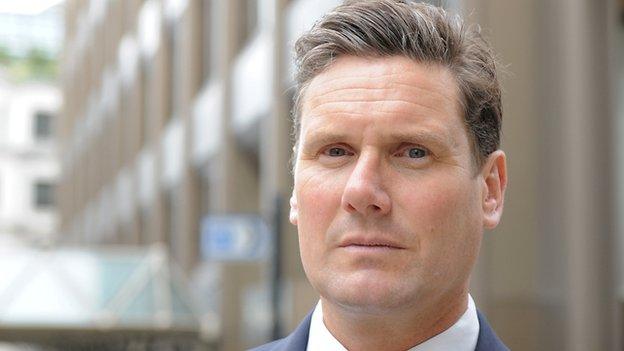
- Published28 October 2014

- Published14 October 2014
